In the real estate industry, title insurance is one of those little details that buyers may not be aware of, but sellers certainly understand. Title insurance is a form of risk management used by lenders to protect their interests in purchased properties. A title insurance coordinator is an individual who manages the day-to-day operations associated with title insurance for a real estate company or organization. They also manage and review applications for new policies and maintain records related to all policies issued by the company. Working as a title insurance coordinator requires specific skills and abilities outlined in a resume. Working as a title insurance coordinator requires particular skills and abilities outlined in summary. A well-written resume can help you land your dream job faster, so read on for our helpful tips on how to write yours.
Title Insurance Coordinator Resume Example

Download This Title Insurance Coordinator Resume as PDF
Title Insurance Underwriter Resume Example
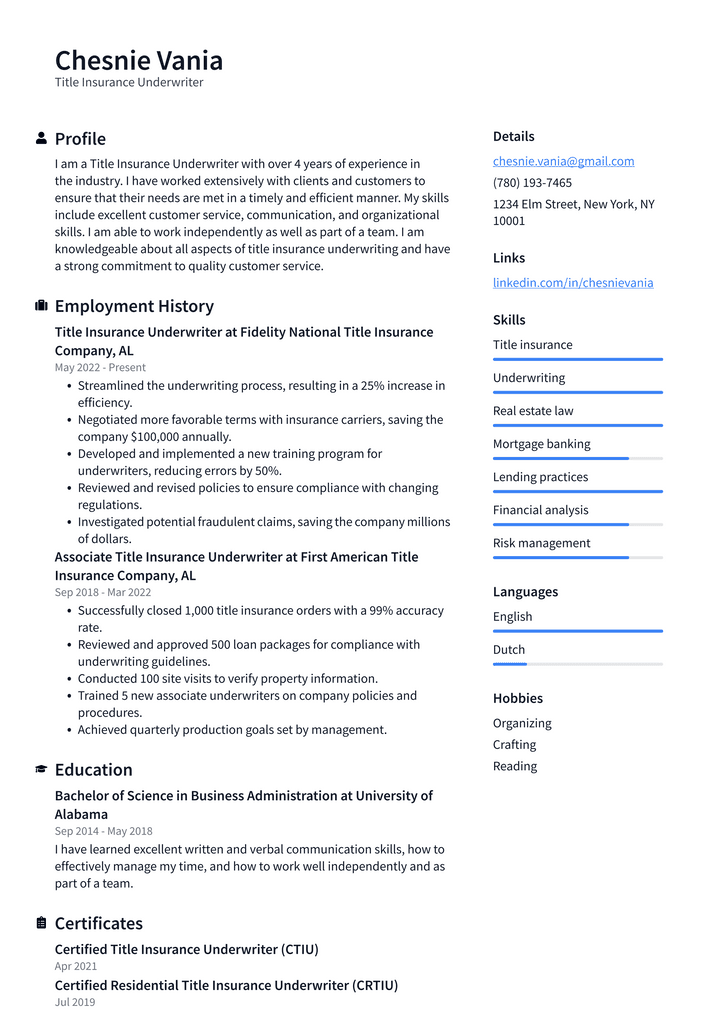
Download This Title Insurance Underwriter Resume as PDF
Title Insurance Agent Resume Example
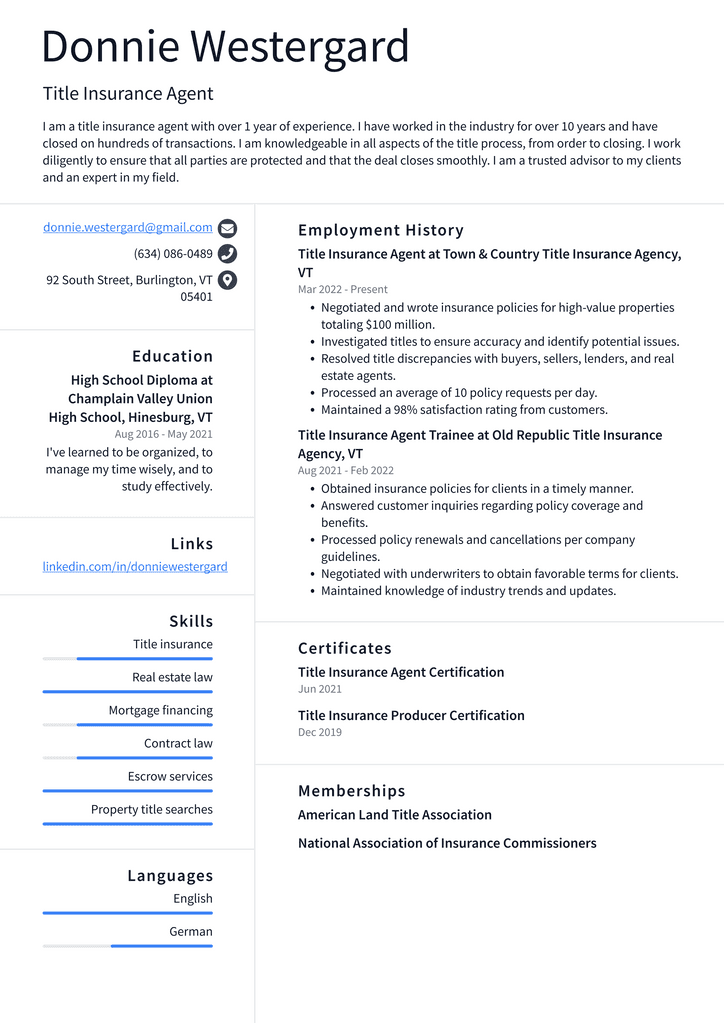
Download This Title Insurance Agent Resume as PDF
Title Searcher Resume Example
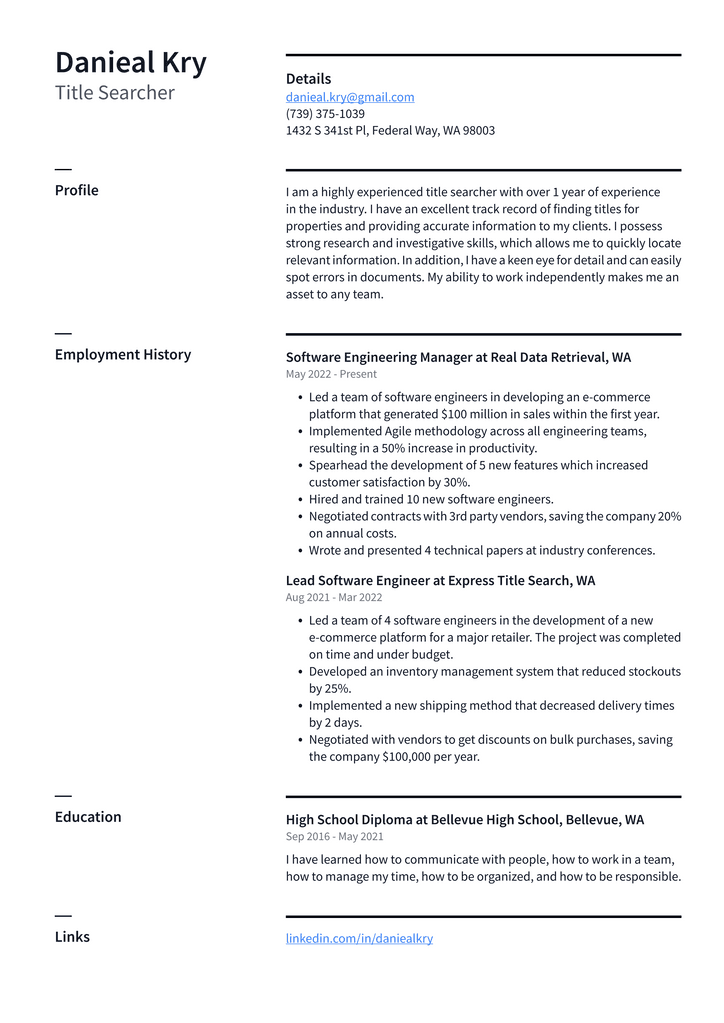
Download This Title Searcher Resume as PDF
Real Estate Attorney Resume Example
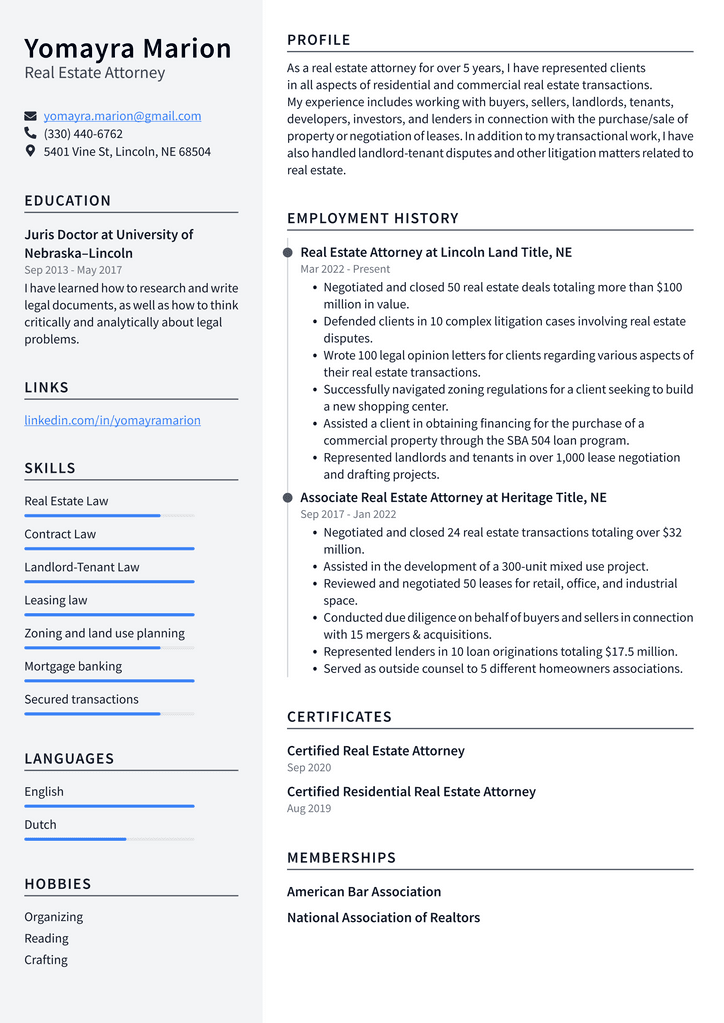
Download This Real Estate Attorney Resume as PDF
Title Examiner Resume Example
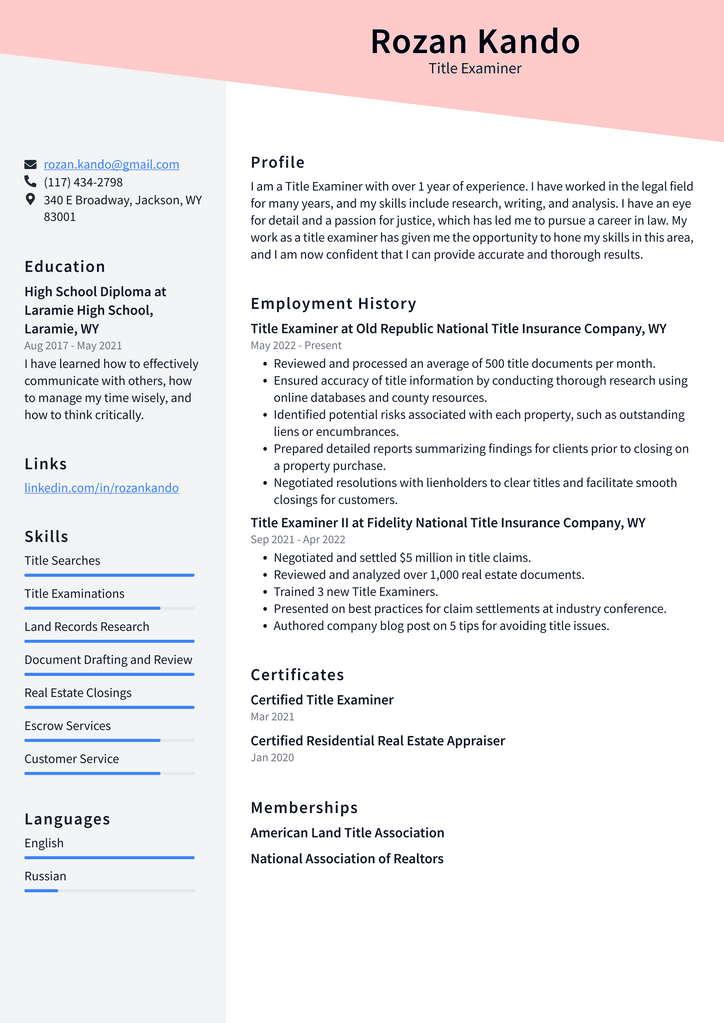
Download This Title Examiner Resume as PDF
Mortgage Loan Officer Resume Example
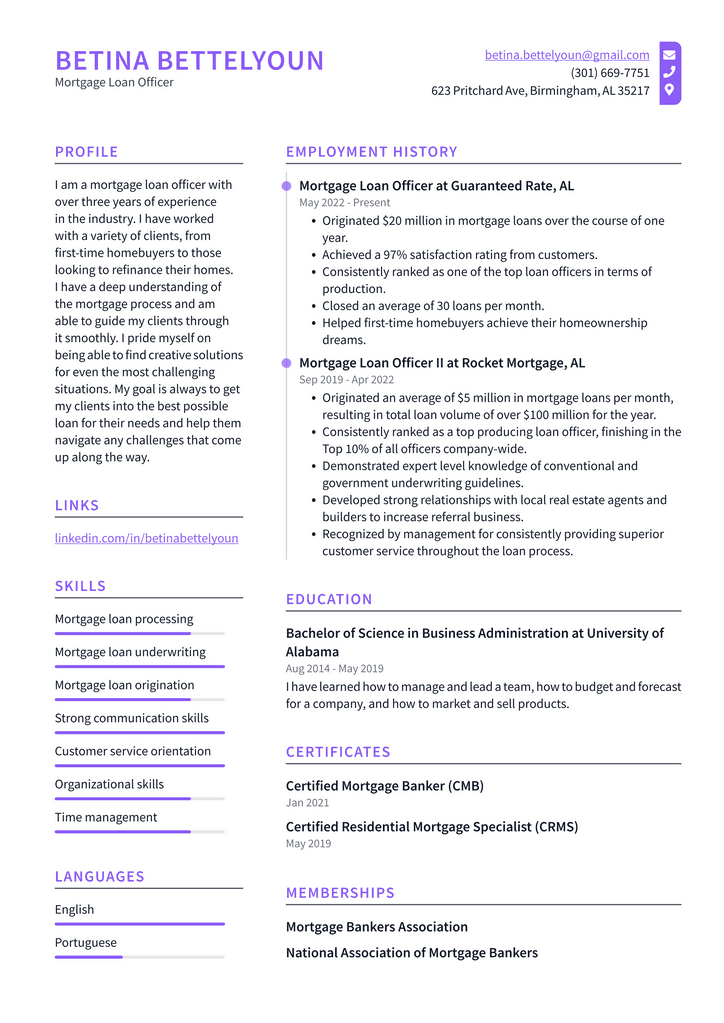
Download This Mortgage Loan Officer Resume as PDF
How to write a winning Title Insurance Coordinator resume
Let’s start by looking at some tips and tricks on writing a winning resume. Visual Appeal – Your resume is the first impression an employer will have of you. Therefore, it needs to look appealing and be easy to read. Make it easy for a hiring managers to find what they’re looking for by organizing the information in a logical, user-friendly manner. Use an appropriate amount of white space, font style, and size. Help the Employer See Your Value – Your resume should show the employer why you are the best person for the job. You do this by telling them what you’ve done in the past, what you can do for them, and how you do it. Get to the Point – Don’t use your resume to tell your life story. Employers don’t have the time or interest to read your autobiography. Please get to the point and tell them what they need to know. This will also help you keep your resume within the one-page limit.
Showing your expertise
Your resume is the first opportunity to show the employers what you can do. To do this, you will want to include a skill or expertise box for each position you’ve previously held. This is an easy way to convey to the employer what you’re best at and what you want to put front and center on your resume. Skill or expertise boxes can also show expertise in a particular industry. For example, a real estate company will almost certainly require employees with expertise in the real estate industry. Therefore, if you have experience or knowledge in this industry, you can put it in the box on your resume.
Mention the Company You’re Working For
If you’re currently employed, you’ll want to include the company you work for on your resume. You can do this in the employment section of your resume, where you will also want your job title and the dates the company employed you. In addition, you must make sure that you spell the company name correctly. If you are applying for a job with a different company than the one you currently work for, make sure you’re clear about what the company does and its role in the industry. This will help the employer understand why you are interested in the job and how you could be an asset to the company.
Mention Your Skills and Responsibilities
After you’ve mentioned the company you work for, you can then list the skills and responsibilities you were responsible for while employed there. The order in which you list the skills and responsibilities will vary from one resume to the next, but you want to ensure that the most relevant and essential skills are listed first. For example, if you were responsible for maintaining the company’s title insurance policies, you would want to put that at the top of the list. Employers will want to see that you know what you’re doing and what needs to be done. If you include everything you did, the employer might be unable to find what they’re looking for.
Mention Your Accomplishments
Your resume is a great place to include a list of your accomplishments, especially if you’re applying for a job in sales. For example, if you’ve been in a position where you’ve been able to meet or exceed company goals, you can put this on your resume. Accomplishments, such as exceeding sales goals, getting a promotion, or winning a company award, are great things to include on a resume. These are concrete examples of how you’ve positively impacted your company.
Wrapping up
Congratulations! You’ve made it to the end. Now that you’ve read this article from start to finish, you have all the information you need to write a winning resume. Your resume is a reflection of you and your skills and expertise. Writing a good one will surely open the doors to a new job, maybe even the one you’ve dreamed of, so don’t rush the process. Instead, take your time and make sure you do it right.